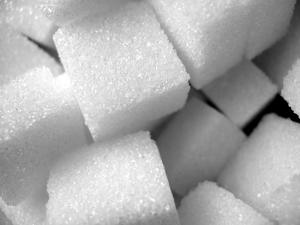 authorities discovered that consumers have been paying well over the odds for sugar for many years. Germany's three largest producers of the sweetener were fined a combined €280 million for illegally fixing prices by the Federal Cartel Office.
authorities discovered that consumers have been paying well over the odds for sugar for many years. Germany's three largest producers of the sweetener were fined a combined €280 million for illegally fixing prices by the Federal Cartel Office.Pfeiler & Langen, Südzucker and Nordzucker, along with seven unnamed individuals were found to have been fixing prices, sales territories and quotas between them for many years, the competition authority Bundeskartellamt said.
The watchdog said that violations committed by the three companies started in the mid-1990s and continued right up until the beginning of an investigation in 2009.
Adreas Mundt, Bundeskartel President, said that the aim of the agreements between Nordzucker, Pfeifer & Langen and Südzucker was to "achieve the highest possible prices for their sugar"
"This type of coordination was not permitted under the European sugar market regulation. In spite of the quota system and minimum price garuntees, competition for sales areas, customers and customer prices is still possible in the sugar market and is also necessary to maintain functioning residual competition in order to protect customers against even greater distortion of competition in this sector."
Südzuker received the largest fine, €195.5 million, while Nordzucker said it had accepted a fine in the single-digit millions.
According to German media outlets, the fines were based on 10% of the companies' turnover and were also relative to the seriousness of the offense. They still retain the right to appeal this decision to the Higher Regional Court at Düsseldorf.
The entire saga also brings to an end a probe initiated by competition authorities belonging to the European Union.
Raids on Suedzucker and Nordzucker by the European Commission last year failed to unearth evidence of competition violations across Europe, the Brussels-based EU authority said in an e-mailed statement today.
The EU’s “initial suspicion as to the existence of price and volume arrangements between the sugar producers in various EU countries was not conclusively confirmed by the information gathered on the spot,” said Antoine Colombani, a spokesman for Joaquin Almunia, the EU’s antitrust chief.
“The commission does not exclude that it may re-investigate the sugar sector at a later stage on the basis of new elements.”





